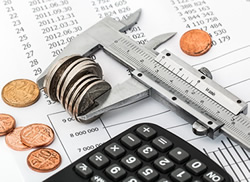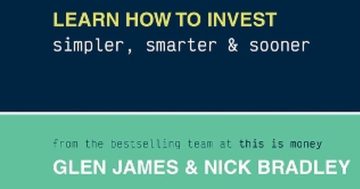Brian O’Connell* says deciding whether to pay down debt or invest for the future is a common problem.
 Should you pay off debt or invest the money instead?
Should you pay off debt or invest the money instead?
That’s a common question asked around kitchen tables – and it’s one that really has no perfect answer.
It depends on your personal financial situation and your short and long-term financial goals.
What financial experts do know is that there are more household budget scenarios where paying off debt makes more sense than investing.
So, let’s examine where paying down debt is preferable to investing and where investing is preferable to paying off debt.
The case for paying down debt first
Overall, becoming largely debt-free is a liberating prospect, even if your investment portfolio is gathering cobwebs in the process.
By paying down debt, you’ll sleep better, have less stress, build a better credit score and save money on future credit and loan needs – as a more robust credit score will lead to lower interest rates and better loan and credit conditions.
Those are highly desirable outcomes for any consumer and they give ample weight to the argument that paying off debt should come first.
Of course, some scenarios are more dire than others and you’ll really need to focus on debt over investing in the following scenarios:
You are paying off debt with high interest attached
Paying off debt can really come down to the interest you’re paying on that debt.
For example, if you’re paying off $5,000 in credit card debt with an interest rate of 25 per cent (that’s not uncommon on credit card debt), you’ll want to get that piece of debt off your ledger before you ever consider investing the money.
Even if you pay $250 a month, it would still take you 27 months to pay down the total $5,000 debt.
In the meantime, you’re paying an additional $1,535 in total interest on the card.
Now, you may or may not do better by investing in the stock market over that same period.
What’s certain is that you’ll be taxed on the investment return if you want to cash out and you’ll likely still face an even higher credit debt after the five years are up.
The verdict
Pay down the high-interest credit card first.
You’ll eliminate the 25 per cent interest payment penalty on your card and you’ll improve your credit health in the process.
That’s likely a better deal than investing the money, especially if you either eliminate or severely curb the use of that high-interest credit card altogether.
You are paying off high student loan debt
There are few investments that can alleviate the stress and strain of having high student loan debt.
Luckily, there’s a good ‘tried and true’ formula for deciding to pay off student loan debt or investing the money – and once again largely dependent on your interest rate.
If your loan interest rate is 6 per cent or higher, you should focus your attention on paying down your student loan debt as fast as possible.
That’s because most investment vehicles – even high-returning stocks – usually only average 6 per cent in returns after taxes.
Putting money into stocks and funds at a 6 per cent return rate when you have a student loan debt of $25,000 or $50,000 at a loan interest rate of 6 per cent or higher is just bad business.
The verdict
If your student loan rate is 6 per cent or higher, pay down the loan first, and do so as fast as you can.
You view a home mortgage as an investment preferable to paying down debt
No, it’s not – especially for younger consumers burdened with high credit card and student loan debt.
At first glance, a home purchase may well result in a big profit.
There is no guarantee that’s going to happen in the first place.
Also, many home buyers tend to overpay and buy a home they really can’t afford, which bites into the household budget and any future returns when you sell the home.
Those same homeowners may suffer a layoff or illness and may not able to keep up with their mortgage payments, putting them further behind on their total debts.
The verdict
Pay down your debts before you buy a home.
You’ll have learned a great lesson about debt by having to pay it back, which should lead to smarter home buying decisions.
The last word on debt versus investing
By and large, financial experts advise consumers to avoid debt in the first place by living within your means.
In numerical terms, that means keeping your monthly debt-to-income ratio (i.e., the amount of money you owe against the amount of money you earn) to no more than 30 per cent of your pre-tax household income.
In other words, if your total household debt obligations each month total $2,000, and you earn $48,000 annually (or $4,000 a month before taxes), you’re on your way to a big debt problem and likely won’t have the cash to invest substantially anyway.
Stop that excessive debt behaviour in its tracks by creating and sticking to a household budget, put your credit cards away, and keep a sharp eye on the money coming in and the money going out of your budget every month.
Do that and your chances are good that you have can have the best of both worlds – you can invest a little bit of money each month and still have enough money to chop down your personal debt, as long as you have a good job and live by prudent personal financial habits.
That’s easier said than done, but it does spare you from having to choose between two necessary personal financial obligations – paying down debt or growing your money through investing.
* Brian O’Connell is a freelance writer and former Wall Street bond trader.
This article first appeared at www.thestreet.com/personal-finance











